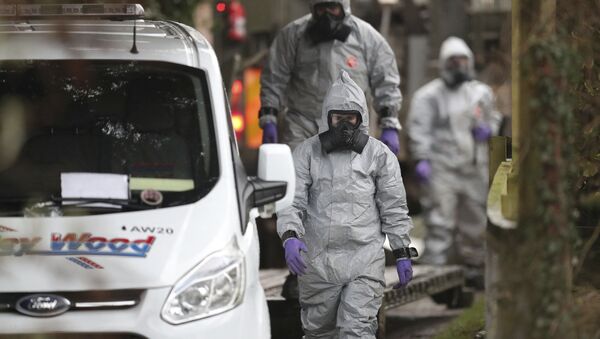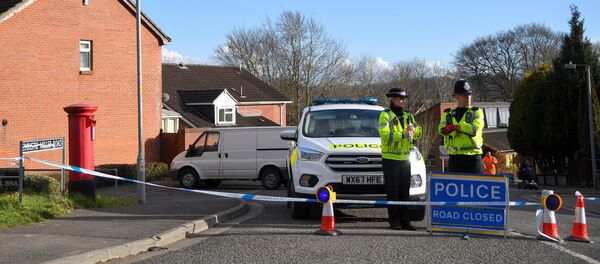Touching upon allegations about the use of Novichok* against the Skripals, Nikolay Kovalev, former head of the Russian Federal Security Service (FSB), said that first and foremost, "one should prove that it was Novichok."
"Novichok doesn't work like this," he explained. "[otherwise] they would have buried the Skripals long ago, I'm sorry for cynicism. Namely, it was something else, other than Novichok," Kovalev said, adding that the Britons are "thoroughly concealing" the truth.
READ MORE: A Month in Sergei Skripal's Health: From Critical Condition to Rapid Improvement
Recalling that the nerve gas is designed to kill, Kovalev said that "in this case, either an antidote was immediately used or it was a different type of toxic substance."
He suggested that as far as the Salisbury incident is concerned, it may be related to "kind of a household version, that is, it is not a chemical substance and not a nerve gas that has been used."
Earlier on Friday, Dr. Christine Blanshard, Medical Director at Salisbury District Hospital said in a statement that Sergei Skripal "is responding well to treatment, improving rapidly and is no longer in a critical condition."
READ MORE: 'Censorship Isn't Cute:' Sky News Slammed for 'Binning' Skripal Interview
The UK's Metropolitan Police Service, in turn, stated on behalf of Skripal's daughter Yulia that she woke up a week ago and that "her strength is growing daily."
Blaming Russia for the alleged poisoning of the Skripals in the southern English town of Salisbury on March 4, London initiated a response by expelling 23 Russian diplomats, freezing bilateral contacts, as well as a government and royal family boycott of the upcoming FIFA World Cup in Russia. Many of the UK's allies, including the US, Australia and much of the EU, have followed suit.
Most recently, Russian Ambassador to the UK Alexander Yakovenko stated that the country had never developed the poisonous substance dubbed the Novichok and fully destroyed its chemical weapons' arsenal in 2017.
The views and opinions expressed by Nikolay Kovalev are those of the speaker and do not necessarily reflect those of Sputnik.
_____________________________________________________________________
*a nerve agent, commonly known as A-234




